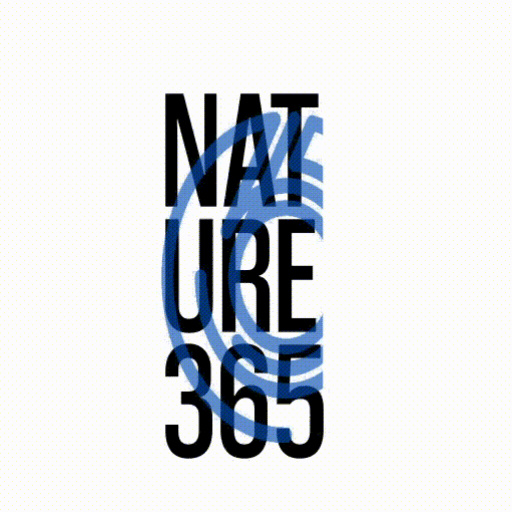Among the world’s diverse ecosystems are coral reefs. The creatures mostly in charge of creating reefs are known as coral polyps. It comes in various shapes and sizes. Thousands of kinds of corals exist; some inhabit the deep, dark depths of the ocean, while others thrive in warm, shallow tropical waters.
Diverse and complex creatures are involved in various interactions within the vast and varied food webs found in coral reefs. In coral reefs, photosynthetic algae known as zooxanthellae work in symbiotic relationships with coral polyps, which are the main producers in the reef.
Food webs consist of different organism groupings called trophic levels. In this example of a coral reef, there are producers, consumers, and decomposers.
Primary Producers: Those in the first trophic level are producers. A creature that can generate its energy and nutrients typically by photosynthesis or chemosynthesis is referred to as a producer or autotroph.
The primary Producers of the reef ecosystem are coral and Algae. The coral lives harmoniously with microscopic algae called zooxanthellae in their tissues. The corals receive their nourishment from the photosynthetic zooxanthellae. Types of algae, including macro- and microalgae, are involved in coral reefs’ primary production. While some algae could compete with corals for space, others might provide food for herbivores.
Herbivores (The primary consumers): Consumers are organisms that depend on producers or other consumers to get their food, energy, and nutrition. Customers come in a wide variety of forms. Herbivores are often first-order consumers, also known as primary consumers.
Several fish species including parrotfish, surgeonfish, and damselfish are fed on algae. Their eating habits are critical for keeping the balance between corals and algae. That is why we need to keep it under control.
Carnivores (secondary consumers): Secondary consumers prey on primary consumers. They are usually carnivores. A wide variety of fish species, such as groupers, snappers, and lionfish, feed on smaller fish and invertebrates. Some have specialised roles in maintaining the general environmental balance by managing the numbers of certain species. Among their many roles as predators, crustaceans, and other invertebrates feed on smaller species. Shrimp and crabs, for instance, are significant scavengers.
Tertiary Consumers (Top Predators): Tertiary consumers are carnivores that mostly eat other carnivores. Larger predators at the top of the food chain include sharks, jacks, and barracudas. They are essential to maintaining the general health and balance of the reef ecosystem because they control the numbers of organisms at lower trophic levels. Top predators are at the top of the food chain and have no predators of their own.
Detritivores and decomposers: The food web’s energy cycle is completed by detritivores and decomposers. Organisms known as detritivores eat decomposing organic matter. Organisms known as decomposers disintegrate decaying organic matter and replace the sediment with nutrients. The cycle is completed when the producers utilise these nutrients to produce energy during photosynthesis.
Coral reef ecosystems’ advantages
Coral reef ecosystems are extremely beneficial to human society and marine environments due to their many ecological and economic benefits.
Among the planet’s most biodiverse ecosystems, coral reefs are home to an incredible variety of marine life. Numerous fish, invertebrates, and other animals find homes in the intricate structures of coral reefs, which adds to the great species variety of the environment. For many fish species that are significant to the fish industry, coral reefs provide essential breeding and rearing grounds. They sustain fisheries, which are essential to millions of people’s livelihoods and food security globally. One possible source of medicinal substances is coral reefs. Many marine species that inhabit coral reefs generate bioactive substances that are used in medicine to manufacture antibiotics and anti-cancer medications, among other things.
Local companies benefit financially by hundreds of millions of dollars from fishing, diving, and snorkeling on and around reefs. It is estimated that the global coral reefs have a net economic worth of about tens of billions of dollars annually. Indigenous people throughout the world place a high value on these environments.
To retain these benefits and guarantee the sustainability of the many advantages coral reef ecosystems offer to human civilizations and the environment, the preservation and protection of coral reef ecosystems are essential.
Hazards to the ecosystems of coral reefs
Ecosystems of coral reefs are sadly seriously threatened. Diseases, predators, and storms are a few examples of natural dangers. Human activity is also responsible for other dangers, like as pollution, sedimentation, unsustainable fishing methods, and climate change, which is warming the water and making it more acidic. While some of these dangers physically harm these fragile ecosystems, many can stress corals to the point of bleaching and eventual death.
A major worry for coral reefs is coral bleaching, which is frequently associated with rising water temperatures and other stresses. Corals lose the symbiotic algae that gives them energy when they bleach. Since many species depend on healthy coral reefs for their existence, this not only impacts the corals themselves but also upsets the balance of the food web.
Scientists are also experimenting with innovative methods of assisting coral reef ecosystems.
- About the Author
- Latest Posts
A passionate advocate for all natural and sustainable ideas. With a background in sustainable economics science and a deep love for nature, Sojy has dedicated his career to promoting eco-friendly practices and encouraging others to live a more sustainable lifestyle. He is an avid hiker, gardener, and cook, and loves experimenting with natural ingredients in his recipes and lifestyle routines. Sojy believes that small changes can make a big impact and is constantly seeking out new ways to reduce his carbon footprint and inspire others to do the same



